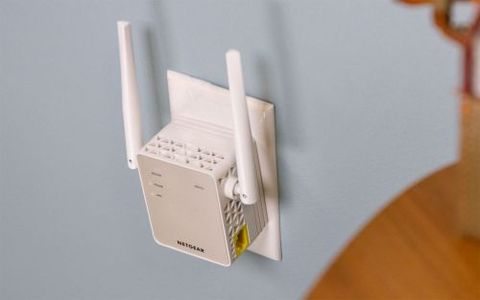We were generally disappointed with the Netgear EX6120’s performance in our tests. Though it is common for Wi-Fi range extenders to lose some of the original network strength in the process, the EX6120 only managed to capture and rebroadcast 7-13 percent of the original signal into its expanded network. Compared to devices like the TP-Link RE450, which maintained 90 to 100 percent of the original network speeds, the Netgear extender just doesn’t measure up.
We integrated the Netgear EX6120 into our testing facility’s network to run it through five different test configurations. These were designed to assess the extender’s performance over long, uninterrupted distances, between multiple floors of a building and with obstructions including walls between the router, extender and test laptop. We used Ixia’s IX Chariot to test the network with and without the extender set up to establish a baseline, and we calculated scores based on the percentage of the original network speeds present in the extended network. We found that the ten products we tested fell neatly into three performance tiers. The top tier boosted 90 to 100 percent on most trials. The four middle products held on to about half of the network throughput, and the bottom three averaged around 10 percent or less. The EX6120 is in the bottom tier, with scores ranging from 7 to 13 percent in our tests. While we tested the EX6120, our network speeds ranged from 200 Mbps to 530 Mbps. Even though the device should be capable of easily handling these speeds, it only ended up extending 20 Mbps to 52 Mbps.
Because the EX6120 doesn’t have a way to check that both bands are connected and extended correctly during setup, there isn’t a way to verify that the best band for the job is being boosted. The EX6120’s max speeds on the 2.4 GHz band are slower than the max on the 5 GHz band, but they travel farther. It does have a color-coded strength indicator LED that glows green, red or orange, depending on the quality of signal from your router.
When it comes to reported specs and features, the EX6120 is comparable to top-performing products like the TP-Link RE305. It uses wireless AC technology, has a Fast Ethernet port, plugs directly into a wall outlet and has two external antennas. Our hands-on experience, however, makes us reluctant to recommend the Netgear EX6120 Essentials Edition Wi-Fi extender, as there are much better options available.


